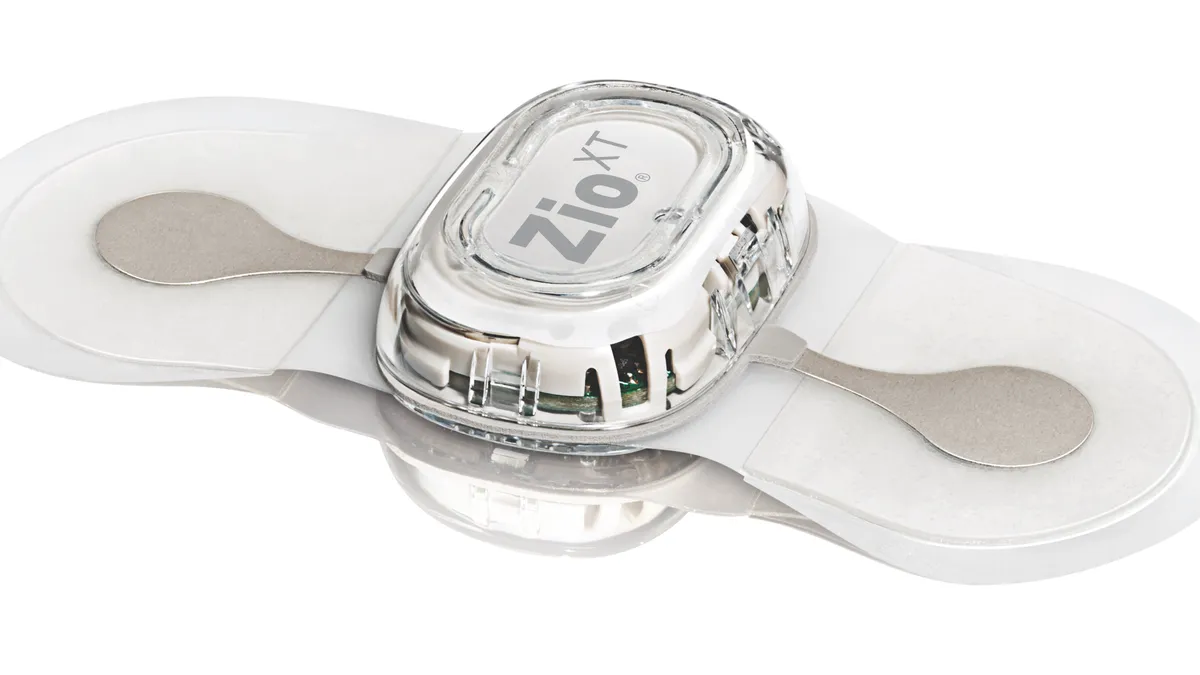Dive Brief:
- After nine years working with iRhythm Technologies, President and CEO Kevin King will step down from his position effective Jan. 12, 2021. King will stay on the board of directors and in an advisory role after his departure next year, according to a Monday night announcement.
- Michael Coyle, Medtronic's executive vice president and president of the cardiovascular portfolio, will replace King in both roles beginning in January, and he will leave Medtronic effective Dec. 31. Medtronic announced that Sean Salmon will take over Coyle's position at the end of the year and continue to lead the diabetes operating unit.
- William Blair analysts wrote that while King's departure is surprising, Coyle "can extend many of the key tenants to iRhythm’s competitive advantage and in turn help deliver long-term growth and shareholder value." Other analysts took a wait-and-see approach.
Dive Insight:
iRhythm makes the leadership transition after a recent string of both successes and challenges. In November, the company presented data at the American Heart Association's annual scientific meeting showing its Zio patch increased the rate of atrial fibrillation detection and reduced cardiac events, furthering the efforts to double its existing market by targeting asymptomatic patients.
The company also received a boost in early December when the U.K. National Institute for Health and Care Excellence published guidance recommending the use of its Zio XT as an option for people with suspected cardiac arrhythmias who could benefit from electrocardiogram monitoring for longer than 24 hours.
However, the company was dealt a blow shortly after when CMS decided not to finalize national pricing for extended external EKG patches, causing its stock price to tumble 24% the evening the final rule was released.
King said on a call after CMS released the final rule that it could be as much as two years before it achieves national pricing.
Despite the recent "near-term uncertainty," William Blair analysts were still bullish on their position given that the company continues to grow its market share in a $2 billion cardiac monitoring space it pegs is 20% penetrated. The analysts added that the company's stock price is trading at 15 times higher than 2021 sales estimates.
Coyle, who comes from running a global cardiovascular group, should help iRhythm achieve its "long-term growth expectations," the analysts wrote.
Baird analysts were surprised and a bit more cautious as to what the change in leadership could mean for iRhythm given its recent ups and downs.
"It is hard to fully wrap [our] head around [the] timing of this," the analysts wrote. "A bull may argue this is a good opportunity for leadership transition — plenty of positives for the new CEO to lean into and nurture. A bear may ask — what are we missing here? If the future remains very bright, why leave?"
As for Medtronic, Salmon will be running two groups: diabetes and, now, cardiovascular. The latter accounts for greater than $10 billion in revenue for the company, according to Evercore ISI analysts.
Salmon will be in charge of turning around a diabetes group "at a low point" but does have the majority of future product development completed, the analysts wrote. Meanwhile, the cardiovascular group has multiple product cycles over the next 24 months, giving Salmon some time "to settle into his role," and the company's recent restructuring should also help him manage both roles.











